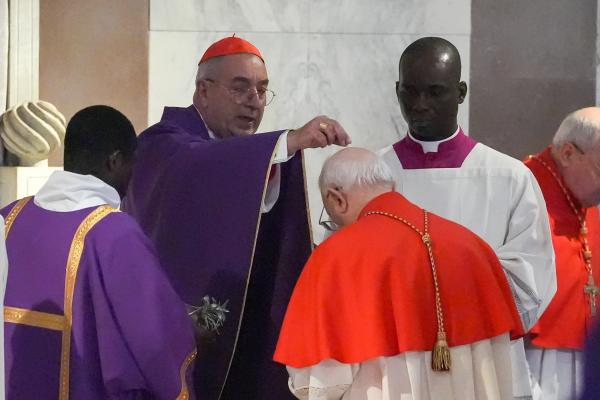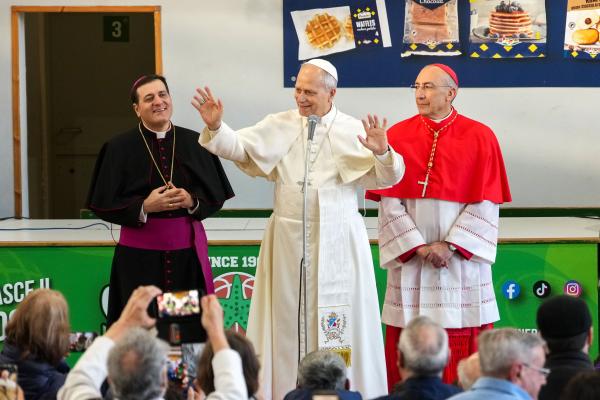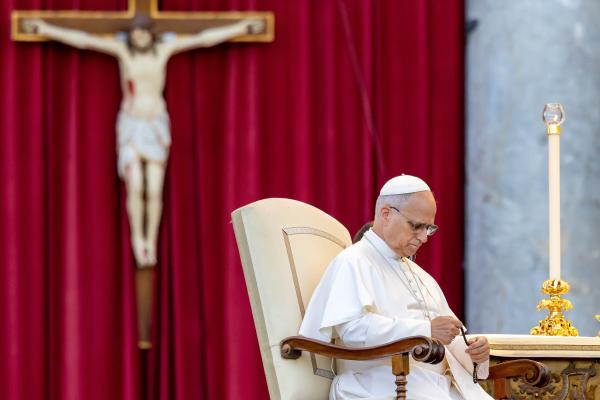Pope inaugurates center, farm dedicated to zero-waste, inclusive economy
Pope Leo XIV officially inaugurated Borgo Laudato Si’, a new educational and economic project located on the papal property in Castel Gandolfo, dedicated to Pope Francis’ vision of integral ecology.
Featuring solar-powered classrooms, a greenhouse, farmland and gardens, the center promotes sustainability, a circular and generative economy, and care for creation.
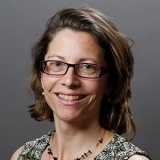 Carol Glatz
Carol Glatz
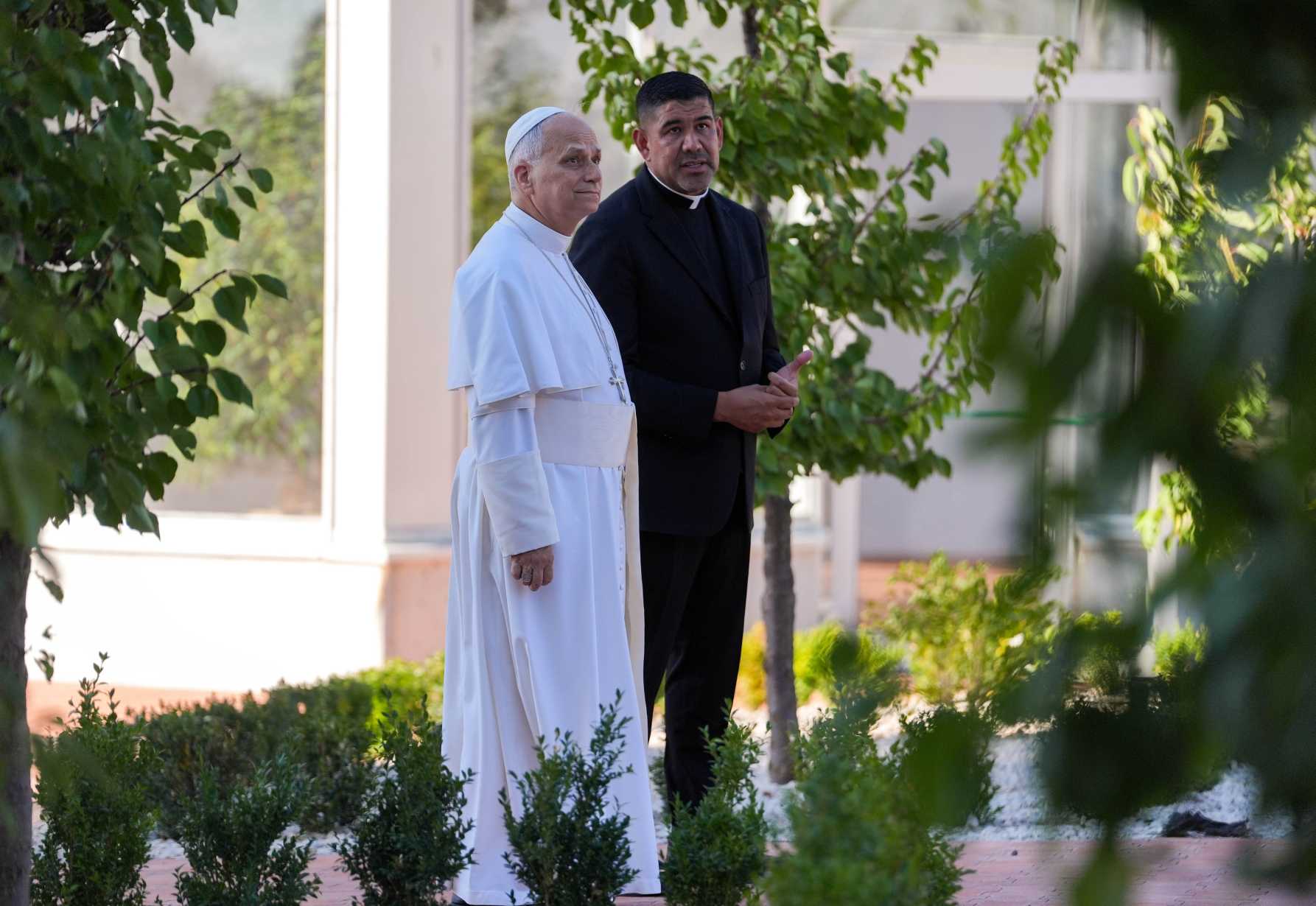
Pope Leo XIV stands with U.S. Father Manuel Dorantes, administrative-management director of the Laudato Si’ Center for Higher Education, at the greenhouse of Borgo Laudato Si’ in Castel Gandolfo, Italy, Sept. 5, 2025. (CNS photo/Lola Gomez)
VATICAN CITY (CNS) -- Surrounded by formal Italian gardens, ancient Roman ruins and long avenues of lush trees, Pope Leo XIV inaugurated a new "zero environmental impact" complex devoted to promoting Pope Francis' teachings on caring for creation at the papal gardens in Castel Gandolfo.
A newly built circular greenhouse, reminiscent of Bernini's curved colonnade in St. Peter's Square, and two new buildings, all topped with solar panels, make up the heart of Borgo Laudato Si' -- a project dedicated to promoting integral ecology, sustainability and a circular and generative economy.
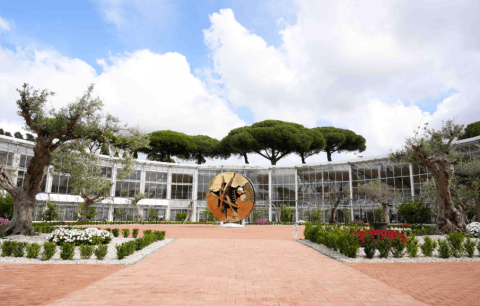
Caring for creation "represents a true vocation for every human being, a commitment to be carried out within creation itself, without ever forgetting that we are creatures among creatures and not creators," Pope Leo said in his homily during a prayer service in the greenhouse Sept. 5. The service was attended by employees and their families, members of the Roman Curia, representatives of partner companies and organizations supporting the project, and other special guests.
"Borgo Laudato Si', which we are inaugurating today, is one of the church's initiatives aimed at fulfilling this vocation to be protectors of God's handiwork: a demanding but beautiful and fascinating task, which represents a major aspect of the Christian experience," he said.
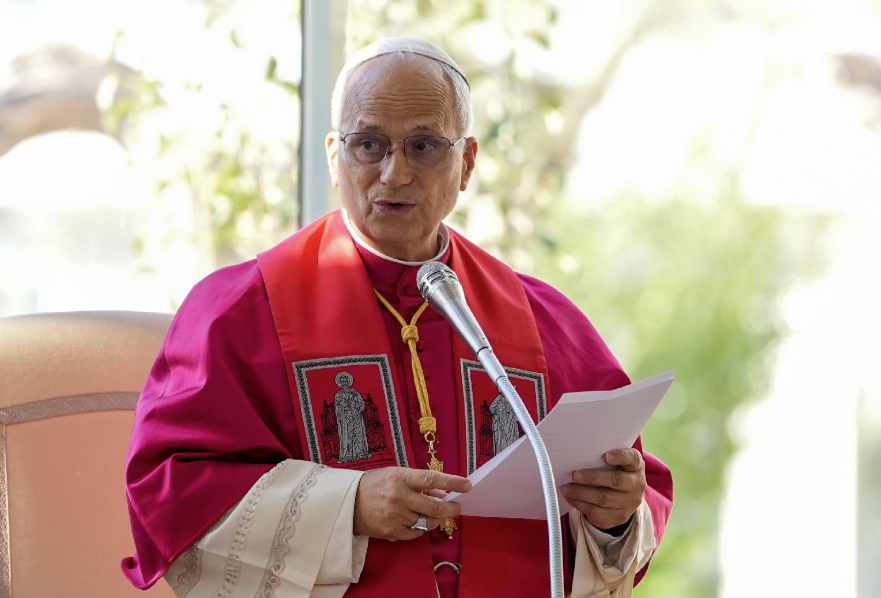
The initiative, which seeks to make concrete the church's teaching about integral ecology, "is a seed of hope that Pope Francis has left us as his legacy," he said, and it represents "a synthesis of extraordinary beauty, where spirituality, nature, history, art, work and technology coexist in harmony."
After the pope blessed the center, Andrea Bocelli and his son, Matteo, sang "Dolce Sentire," which was inspired by St. Francis of Assisi's Canticle of Creation. The ecumenical Season of Creation runs from Sept. 1 to Oct. 4, the feast of St. Francis.
The Borgo, which means "village" or "hamlet" in Italian, extends over 85 acres of gardens and 50 acres of farmland, and is home to cows, horses, donkeys, chickens and other small animals.
During his two-hour visit, Pope Leo greeted a few of the furry residents, including a white Andalusian horse, named "Sale Rosso" (Italian for "Sal Roja"), that was gifted to him as a reminder of the horses he used to ride to reach rural areas when he was bishop of Chiclayo, Peru. Clicking his tongue to greet it, the pope rubbed the horse's muzzle and fed it a small chunk of carrot.
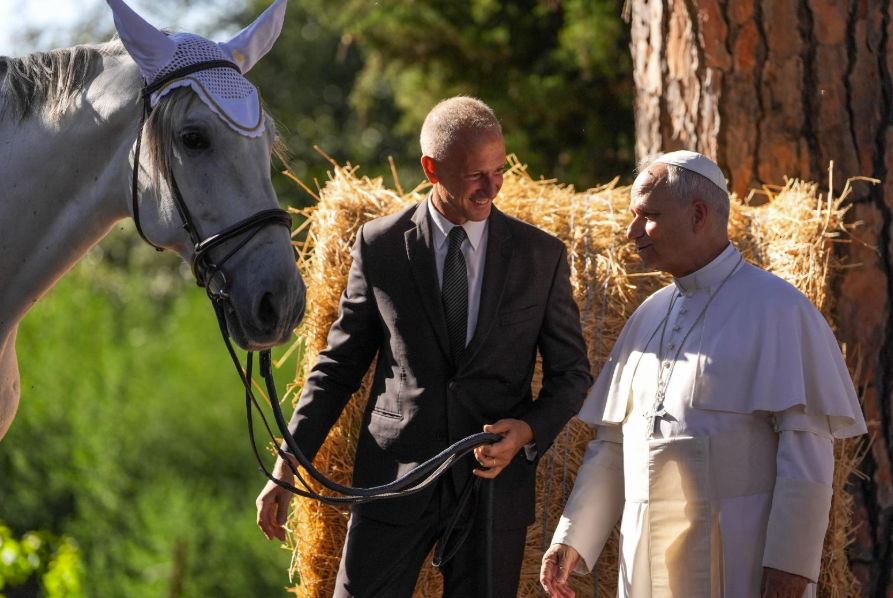
He also petted a newborn calf named "Domenico" because it was born on Sunday ("Domenica" in Italian) and a brown pure-bred Spanish horse.
The pope arrived at the papal property in Castel Gandolfo, just 15 miles southeast of Rome, in the late afternoon to greet the project's gardeners, farmers, engineers, staff and their families.
He first prayed in the Garden of the Little Madonna, where he had celebrated Mass "for the care of creation" in early July, soon after the Vatican announced that a new formulary of prayers and biblical readings for the Mass would be added to the Roman Missal.
Run by the Vatican's Laudato Si' Center for Higher Education, Borgo Laudato Si' aims to send the message that "ecological conversion is possible and arises from the encounter between faith, responsibility and hope," Cardinal Fabio Baggio, director general of the center and undersecretary of the Dicastery for Promoting Integral Human Development, said in his opening remarks.
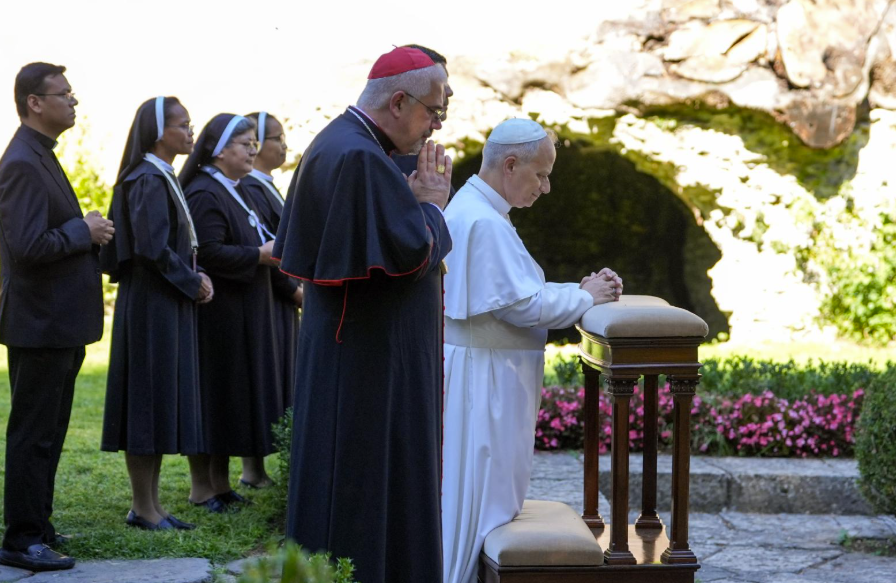
"This conversion will enable us to transform reality and build a more just and fraternal world," he said.
The center is open to everyone, organizers said, and it will feature educational programs for students of all ages and from all over the world, and retreats for business leaders desiring to adhere more closely to the Catholic principles of caring for creation and protecting human dignity.
The center currently runs a vocational training program in gardening and agriculture for vulnerable and marginalized individuals, and it plans to sell products produced on the farm to the public, including cheese, olive oil and wine that will carry the label "Laudato Si'."
It also plans to open a restaurant in the spring of 2026 using only locally grown and sourced products. Chicago natives Art Smith, a chef, and Phil Stefani, a restaurant owner, will operate the restaurant and catering services.
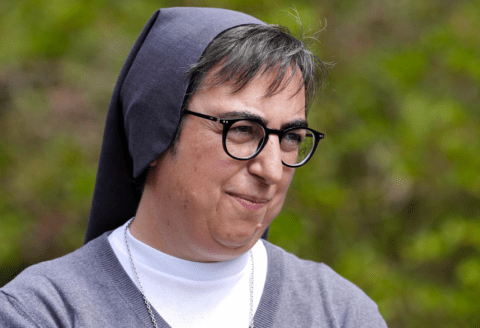
Salesian Sister Alessandra Smerilli, a member of the board of directors of the Laudato Si' Center for Higher Education and secretary of the Dicastery for Promoting Integral Human Development, told reporters Sept. 2 that they want to "generate economic growth and profits, but these profits should not enrich a select few; rather, they should be put back into circulation" at the center to support its programs and workers.
This so-called generative and circular economy also seeks to generate no waste by using all materials responsibly and by protecting the human person from a "throwaway" mentality, she said.
"The activities that will be carried out here have this objective, starting with agriculture, everything we see here in the orchards, catering, everything that can be set up must be based on this, and wants to be a model of this," she said.
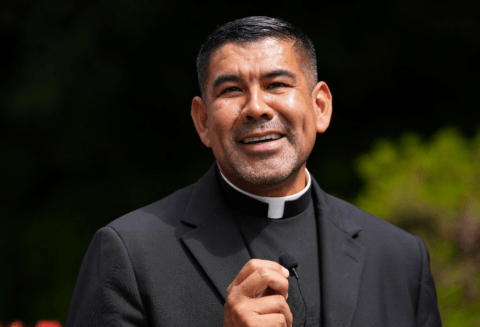
U.S. Father Manuel Dorantes, administrative-management director of the Laudato Si' Center for Higher Education, told reporters Sept. 2, "the message that Pope Francis wanted to send is that if we, the smallest city-state in the world, can do this, what is the potential for other states that are bigger than us, that have more resources than us, and that have wonderful talents and wonderful territory that God has given them?"
"They need to be the protagonist of their own people. And therefore, the pope is now being the protagonist of his own territory to create a model that can inspire people, that a world can be different if we work together," he said.
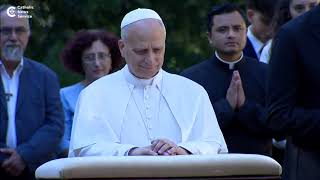
Borgo Laudato Si': Evangelization through ecology
Pope Leo XIV inaugurated Borgo Laudato Si’ at Castel Gandolfo, the historic papal summer residence, Sept. 5, 2025. (CNS video/Robert Duncan)

